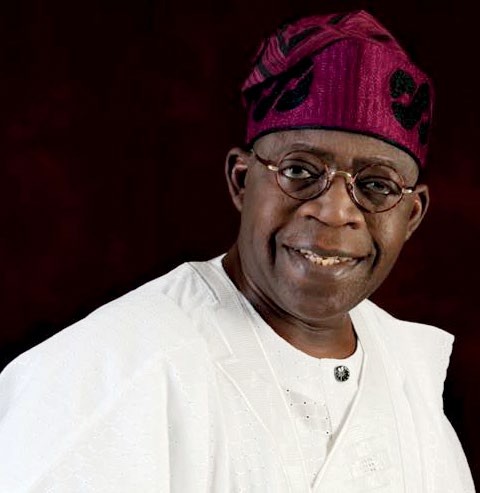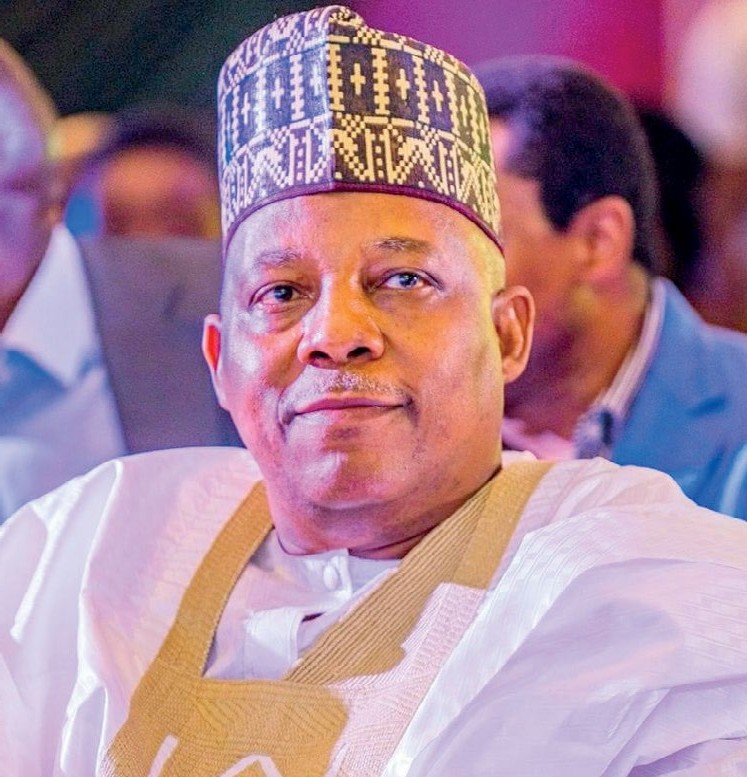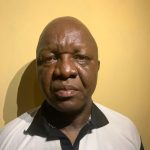The presidential candidate of the All Progressives Congress (APC), Asiwaju Bola Tinubu won the February 2023 Presidential Election.
Although two contestants in the election, Alhaji Atiku Abubakar of the Peoples Democratic Party (PDP) and Mr Peter Obi of the Labour Party (LP) are already challenging the outcome of the election in court, the situation as of now is that Nigeria has a President-elect in the person of Tinubu.
However, if sworn in on May 29, 2023, Tinubu will have in his possession, the enormous powers that the extant constitution bestows on the President of the Federal Republic and he must focus on what to do for his country and how he will do it.
One needs to warn that having made a reasonable success of governing Lagos State, Asiwaju Bola Tinubu should not take for granted his new assignment.
Lagos is not Nigeria. Nigeria is a highly diverse country of over 200 million people spread across more than 900,000 square kilometers and so it is far more complex to manage.
Tinubu will need the political sagacity and the wisdom to surmount the challenges ahead of him. To this end, only wise and confident advisers and cabinet members will make his task easier and his tenure memorable.
With less than 30 days to the inauguration of the new President on May 29, 2023, Nigerians are already setting the agenda for the incoming helmsman. They are eagerly awaiting Tinubu’s assumption of power amidst the decadence of the past eight years.
Many Nigerians believe that despite the outgoing President Muhammadu Buhari’s claim to have done his best for the country, his best has not been enough. Little wonder, Tinubu christened his manifesto, “A Renewed Hope”.
Political analysts and commentators cannot agree less with Tinubu that what Nigerians need now is hope from the past decadence.
Tinubu, the president-elect, has put together an 80-page ‘Action Plan for a Better Nigeria’ which has characteristically shown that he is intellectually and mentally prepared for the task ahead.
Tinubu has earlier described this job that he is about to take up as his life-long ambition.
The 1999 Constitution has set in unambiguous and simple language, an agenda of action for any government in charge of the country no matter the political leaning. Section 14 (2)(b) of the Nigeria Constitution says that ‘the security and welfare of the people shall be the primary purpose of government…’
All political, economic and social measures of all branches of government and their agents at every level must be guided by this unambiguous provision.
The provision is fully articulated in the entire chapter on ‘Fundamental Objectives and Directive Principles of State Policy.’
Some informed opinions believed that an industrial economy must have enough electricity to power it.
They said, “With due respect to the measures stated in the Tinubu action plan, there is a need to declare an emergency in the power sector. The industries and other businesses are functioning at unacceptably low capacity because of poor power supply. But the rest of the world is passing Nigeria by in terms of production and productivity. This is embarrassing. Mr Tinubu must think out of the box to quickly increase electricity supply first to the businesses. That way manufacturers will work longer, more workers will be engaged and goods and services will be generated at lower costs than obtain at present.
“The agricultural output will be raised by steps that include increasing land under cultivation from the present 35 per cent to 65 per cent in four years, set up commodity boards to buy produce from farmers at a guaranteed price, and attracting investment and interest in the agriculture sector through its ‘Farm Nigeria Project.’
Tinubu promises to ‘review the organisation, structure and operations of the Nigeria Railways Corporation’ to achieve ‘better uses of rail…, decongest traffic in urban areas… (and) reduce the number of road incidents and accidents”.
Interestingly, he has identified national security as the bedrock of a prosperous and democratic society’ in his blueprint for a better Nigeria. It goes on to expatiate as including, to ‘redefine military doctrine on method of implementation and practice’ as well as ‘reposition the Police.’
Tinubu and his campaign team rightly takes security matter as first before other matters for the simple reason that, in an unsafe environment, nothing meaningful can be achieved in other spheres of human endeavour. That is the pillar of the constitution in Section 14(2)(b).
Among other daunting tasks that he would be confronted with is how to unite a country that has been torn apart by ethnic and religious sentiments. Many observers believe that Nigeria appears to be more divided now along ethnic lines than in the last eight years.
Analysts believe that the sharp division in the country heightened the last presidential election where support for the major candidates was largely along regional lines.
A political analyst, John Osadebe, said, “The results of the last election only highlight Nigeria’s deep, ongoing divisions. Many Nigerians voted according to ethnic, religious, and social sentiments.
“Generally, if you look at it, it only shows how deeply divided Nigerians was and may be for a long time”.
Sadly the division was further seen in the March 18 governorship and states assembly election, where violence was allegedly unleashed on some non-Yoruba residents in Lagos in a bid to suppress and intimidate them from exercising their franchise.
This also caught the attention of Tinubu who said he was saddened by the “isolated” infractions in some states as well as the divisive rhetoric that characterised the polls.
In the midst of the current tension, many believe the president-elect has the daunting task of uniting the country.
Many analysts however believe that based on his large-heartedness and tolerance, the president-elect can unite the country, though it is not going to be easy. They cited his cabinet in Lagos where he had many people from outside Lagos and Yoruba land as a whole in his government.
The likes of Ben Akabueze, Adama Igholi, and others were names that were not Yoruba, yet they functioned well under Tinubu. It may be difficult in the first one year, but unity will return afterwards”, they posited.
Alexander Idachaba, an indigene of Ankpa in Kogi State, said that Bola Tinubu did all he can to win, but afterwards, he will do all he can to unite Nigerians unlike Muhammadu Buhari, who never cared for the Eastern part, some North-Central states and South-South of Nigeria for not voting for him.
“I think Bola Tinubu knows the dynamics of politics more than any of us. He will send his foot soldiers and move where necessary to gather people back to support his government. We should wait for his cabinet that will tell us how ready he is to unite the citizens after the election troubles,” he said.
Also speaking about what Tinubu should do when he assumes power, the wife of former Governor of Oyo State, Mrs Florence Ajimobi, said, “We have seen tremendous improvements in governance and as far as I am concerned, he would do well as the President of Nigeria because he is an experienced man and a good manager.
“He is also going to improve on what the present government of President Muhammadu Buhari has done. The issue of governance is continuity and no one or individual can finish governance. When you get there you have to continue on what is on ground and improve on it. No doubt, President Buhari has done his best and I am sure, Asiwaju will perform and he is going to surprise Nigerians. He is capable of turning the economy of the country around and I know that he has already mapped out how the security issues in Nigeria would be tackled.
“Unifying the country is definitely one of the issues which the coming Federal government should look into in order to further cement the existing unity in Nigeria. This would also reduce the agitations of marginalisation here and there. This would go a long way to address the issue of insecurity because each zone or region would map out how some of these issues would be solved according to the dictates of the region.
“One of the areas that I expect the incoming government to look into is education, the employment of the youths and empowerment of women. I would like women to be more involved in governance and programmes of the new government of the APC. I am sure Asiwaju Ahmed Bola Tinubu is already listening to the requests of the people and he would do something about them,” she said.
James Ojo, an Abuja based political commentator, said Tinubu would have to tackle many issues that the outgoing administration will leave behind, including a struggling economy, corruption, insecurity, high unemployment, rising inflation and a country divided along ethnic lines.
He said Nigeria is neck-deep in debt and that Tinubu should not embark on further borrowing.
“There is a need for the incoming administration to put all necessary policies to stop federal and states government from borrowing and in the case where the borrowing is necessary the said borrowing should be well monitored and be used to fund projects that can generate revenue out of which the debt can be repaid.
A chartered Marketer with interest in public policy, Michael Umogun said, “Priority for the President elect should be an improvement in power for domestic and industrial consumption. He should also move fast to remove the shame of the lack of refined crude in an OPEC member state.
“Also deserving immediate attention is the spate of terrorist attacks across Nigeria. Investors are losing interest in our case as a country and they are looking elsewhere. We need to help the President elect bring back our lost glory.
“According to the Financial Times of London, Nigeria’s President would inherit a fragile and battered economy. So the task before the Jagaban as our president elect is called is to ensure this sick giant is restore to good health.”
Col. Tony Nyiam (retd.) told THEWILL that he had opted for a spiritual solution to Nigeria’s problems. “For Now I am praying for nigeria, my homeland,” he said.
AYO ESAN, has been actively reporting and analyzing political events for different newspapers for over 18 years. He has also successfully covered national and state elections in Nigeria since the inception of this democracy in 1999.









